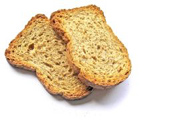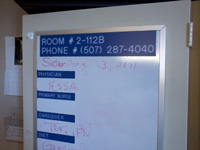
When’s the last time you lost something? And did you ever find it? If you’ve been paying much attention to the news over the last day or so, you know that one of the main stories has focused on the presence of a Japanese fishing vessel off the coast of Canada. After apparently bobbing along in the Pacific for over a year, it’s nearing land. As far as we know, it has had no driver other than the ocean currents. And while it appears rusty and forsaken, it’s still floating—set adrift by the Japanese tsunami of March 2011. Several news sites report that the owner has been notified. I wonder if they now feel relieved or burdened? Their ship has been found but it’s also been tagged as an obstruction!
People get lost too. Sometimes the thing that sets them adrift might be an event, the loss of a loved one, a fractured relationship, or abuse by someone they should be able to trust. The list goes on and on—each with a different story, a different heartbreak, an unspoken burden. Unfortunately “lost” people have a way of getting in our way. And we start seeing them as obstacles rather than as lost people. We give them labels—“that black kid” or “that white guy.”
Jesus, we read in Scripture, came to “seek and save the lost.” “No problem,” we think, “we can go along with that.” But then, just about the time truly lost people start bumping up against us and coming in view of our borders, we call for a hasty retreat. And too often, we don’t even realize what we’re doing. Sometimes it’s as simple as rearranging our gaze and avoiding eye contact. Other times, we call out the protective forces to build a wall around the ways that we know and love. Sometimes we’re bold enough and brave enough and “right” enough that we even call up the owner of the lost stuff to tell him that his lost property has been spotted and is in danger of crashing into our shores and obstructing our ships. The lost has been found, but how often are we more distracted by minimizing damage than we are focused on embracing the lost? May God give us eyes to see and hearts to fully love the “lost” people all around us.
Laura
* Photo Source: (http://msnbcmedia.msn.com/j/MSNBC/Components/Photo/_new/120324-japan-ship-hmed-1p.photoblog600.jpg)

 footprints. Footprints that run into each other and cross each other. Footprints that stand alone and even. Some tell the stories of rabbits. Others of squirrels. Of a chocolate lab. Of people. I could go on and on. A couple weeks ago, I noticed a very telling and interesting set of footprints. Rabbits tracks started and then ended. Where they ended, I noticed an interesting set of tracks. Four wide marks on the snow and then nothing. Wing marks perhaps? I can see it now. A rabbit was moving along, making its way up the hill, when swoop! Down came a hawk and the rabbit went poof!
footprints. Footprints that run into each other and cross each other. Footprints that stand alone and even. Some tell the stories of rabbits. Others of squirrels. Of a chocolate lab. Of people. I could go on and on. A couple weeks ago, I noticed a very telling and interesting set of footprints. Rabbits tracks started and then ended. Where they ended, I noticed an interesting set of tracks. Four wide marks on the snow and then nothing. Wing marks perhaps? I can see it now. A rabbit was moving along, making its way up the hill, when swoop! Down came a hawk and the rabbit went poof! when, surprise, my appendix decided that it wanted to spend the rest its days relaxing on some hillside in France. I take some pleasure thinking about the shock it must have felt when it realized its destiny was a medical incinerator rather than a life of ease in the country. In case you are wondering, I am doing well now. My surgeon at the Mayo Clinic was great. Though, I have a friend who is an anesthesiologist who told me that the job of an anesthesiologist is to keep the surgeon from killing the patient. So maybe, since I am still alive, I should be talking about how good my anesthesiologist was.
when, surprise, my appendix decided that it wanted to spend the rest its days relaxing on some hillside in France. I take some pleasure thinking about the shock it must have felt when it realized its destiny was a medical incinerator rather than a life of ease in the country. In case you are wondering, I am doing well now. My surgeon at the Mayo Clinic was great. Though, I have a friend who is an anesthesiologist who told me that the job of an anesthesiologist is to keep the surgeon from killing the patient. So maybe, since I am still alive, I should be talking about how good my anesthesiologist was.